Spike at Broadway Joe's in Buffalo NY, May 9 2012 (photo - Brian Pattison)
GT: DRI has now been a band for 30 years making it older than a good number of people in the crowd at a DRI show. When you started the band all those years ago did you even
remotely imagine it would last this long?
Spike: No not at all. When we first started I didn't think we would last a month. I didn't think we would ever play a show, much less record albums and tour the world. 30 years sounds crazy when I think about it. It all went by so fast, it doesn't seem that long.
GT: What were some of your early influences that went into the music of DRI?
Spike: When we first started, we were all into hardcore punk. We listened to Black Flag, Circle Jerks, Minor Threat, Dead Kennedy's. Stuff like that. That was what we liked and wanted to sound like. I had other influences also like rock, blues, metal and punk rock that you could hear on occasion in my song writing. But I just gave those styles a DRI hardcore twist, and made them our own.
Harald and Spike, Broadway Joe's, Buffalo NY, May 12 2011 (photo - Brian Pattison)
GT: How does it feel to know that songs you wrote as teens have held the test of time and are still appreciated by fans who discovered you back then as much as they are by fans still discovering DRI for the first time now?
Spike: It's really amazing. Especially with the lack of production we had on the first records. The recordings just sound so bad compared to production values that are out there today. I laugh and cringe and get embarrassed when someone plays our first records. The sound quality is so bad. Some of those songs are just so simple, and have good hooks and lyrics. They are similar to nursery rhymes that live on through generations. I remember writing those songs and thinking they sounded like nursery rhymes.
GT: Really early on DRI managed to gain good followings in both the punk and metal
crowds. As the DRI sound edged more into crossover did you ever worry that you'd lose some of that punk crowd?
Spike: Yes. But we didn't really dwell on it. We were doing what we liked, just like we did
when we were hardcore punk. We didn't like that punks and metal heads didn't get along. We didn't like that punk started to have rules and laws of how you had to be. What you could like and what you couldn't like. How you couldn't dress or style your hair. We got into punk because it was anarchy, anything goes, no rules. It all changed. We didn't like these new rules. I think we rebelled against that and created our own way of thinking and living. We liked metal, we like punk, we put them together and made punk metal. Our fans called it crossover.
Kurt, Rob and Spike, Broadway Joe's, Buffalo NY, May 12 2011 (photo - Brian Pattison)
GT: In 1987 right after "Crossover", you did a small number of Australian dates. This was a
total first as far as really extreme music went - since no other band had been in the country
before and it was at least 5 more years before anyone else got to the country in a remotely fast style (ie: Morbid Angel). The gig I (Alan) went to was your last date which was in Melbourne Australia (it took a long train ride over night to get into the next state) and was the most well attended of any show I had ever seen in the country until leaving it in 1990 - with a huge cross section of fans from varying styles. Understandably it was a long time ago, but is there anything particular from the visit that you still recall?
Australian Tour 1987 shirt front (photo - Alan Moses)
Kurt sold the merch and even signed the back, thanks again! (photo - Alan Moses)
Spike: We played Melbourne, Canberra and Sydney. I remember the long drive to Canberra in a little tiny minivan. I remember the Prince of Wales, in Melbourne. I think it was the first show. A hotel / venue where we played and stayed. I think we did two shows there. I remember eating pizza before one of the shows and feeling sick to my stomach while playing. I remember hanging out with the crowd before and after the shows, partying in the parking lot. We even went to a house party one night.
Spike during DRI's final Australian date in 1987, Melbourne, Victoria - (photo - Stuart Maitland, BUTTFACE 'zine co-editor)
I remember there was a handful of Nazi Skin Heads at the Canberra show. They were in the middle of the pit right in front of the stage. They were punching, kicking and beating innocent kids trying to slam and have fun. There was like no security, and it was getting out of hand. In between songs, while we were tuning up, kids would grab the mic and plead with the skins to stop. This happened a few times, to no avail. The crowd finally turned on them. Now instead of pleading for them to stop while we were taking a break, a chant started. Stop the Nazi's, Fuck the Nazi's, Kill the Nazi's, Fight Fight Fight! Stop the Nazi's, Fuck the Nazi's, Kill the Nazi's, Fight Fight Fight! Over and over and over. Then one guy that got punched in the face, returned the favor, and sucker punched the skinhead that punched him earlier.
Josh, Kurt and Spike in Sydney, New South Wales 1987 - (photo - Randy Reimann, Massappeal vocalist, the band which supported DRI for the full tour)
The rest of the crowd joined in and pounced on the skins in the pit. They were beaten, dragged out the front door of the venue, and thrown into the street or parking lot. They got up and left, and the rest of the show went off without incident. I remember Kurt congratulating the crowd for banding together and policing their own show. And I think some kids in the crowd got up on stage and commended the crowd for taking care of business. I actually have this show on cassette somewhere, and you can hear the whole thing take place. From the pleading to the interruptions for fights, to the chanting and the removal of the problem. It's awesome.
Spike in Sydney 1987 - (photo - Randy Reimann)
GT: The band has had a few lineup changes throughout the years with the two constants
being you and Kurt. Is there any secret to the two of you being able to remain friends and
band mates for all these years?
Spike: Well we are the main songwriters; we are the sound, the style and the driving force behind the band. Plus neither of us want to go back to working a real job. We do not live near each other and do not hang out together when we are not touring. Maybe that helps us from getting on each other’s nerves and hating each other.
DRI set list for the Broadway Joe's May 12 2011 gig - (photo - Brian Pattison)
GT: Many bands lose their live intensity after just a few years, but 30 years in DRI is still an incredible act to witness live. Four guys that look like they're still having a blast playing those songs, no one just going through the emotions. As you have gotten older has it been tough to maintain the live standard of excellence DRI has become known for?
Spike: I guess we really do enjoy what we are doing, cause I know I don't even think of it. Most of the time it's fun. Sometimes we tease and poke fun at each other onstage.
GT: What do you consider some of the primary factors to DRI still being popular with so
many fans of varying interests after the sheer number of years you've been at this? You've
literally grown up with DRI, any major moments in the timeline that has had a lasting effect on you?
Spike: Another thing I don't think about. I guess we do appreciate our fans and treat them with more respect than most bands. I have people come up at every show and tell me how I got them into a show for free, gave them a guitar pick, or just talked to them for a few minutes years ago, and how that has made an impression on them. Some say how other bands are jerks to them. Some of those same people have introduced their kids to DRI. They are bringing them to our shows. And telling them the stories they have from the shows. It's become a hand me down tradition to thrash at a DRI show!
Spike May 9 2012 - (photo - Brian Pattison)
GT: Unlike many acts of today, DRI does not keep a static set list, many of the songs are
played every night, but some are swapped in and out for variation. Do you guys find it tough to choose which songs will be played and which will not given the sheer number of great songs in the DRI catalog?
Spike: I think we have about 140 songs to choose from. Of which we play about 35 at a show in about 90 minutes. It's pretty easy to pick the main songs that were the hits and video songs etc. What's hard is picking the songs that were not so popular. We get a lot of feedback from fans yelling out songs. We try to play songs from every album. And we have to keep 50 or so songs in practice so we can play them at any given moment.
GT: While many bands of today seem to be unfriendly to fans by staying in their tour bus/van until the moment they hit the stage, DRI has remained very fan friendly and fans are even treated by being able to buy merch at shows directly from Kurt. Is it important for you to remain close to your fans?
Spike: Of course. :)
Kurt, Harald and Spike May 9 2012 - (photo - Brian Pattison)
GT: About 6 years ago you were diagnosed with colon cancer. Was it caught during regular
checkups or did you have some ailment that made you go in for a special test?
Spike: I knew I was sick. I knew something was wrong. I told my family doctor, who dismissed it was nothing without even taking my temperature or blood pressure. I got another doctor, who did the same. And a third who I told I seen other doctors who dismissed it as nothing. He told me to go see a shrink. And I began to wonder if it was in my head. That's when I realized it was probably because I did not have insurance. These doctors didn't even want to touch me. And basically I gave up. I was living in California at the time. A year later I moved to Washington state. And got a new family, still without insurance. I told this new doctor the story of how I felt, what my symptoms where, and how all these doctors in California did nothing. He looked puzzled and said well let's order done test.
A week later I was diagnosed with colon cancer. It probably could of been caught before
developing into cancer if one of those other doctors ordered a test too. The cancer was so
advanced by this time my family was told I was terminal. The cancer has spread to my liver. It was not until after surgery when they discovered they were wrong. It was only scar tissue on my liver. But if this went undiscovered a few more months, I would of definitely been
terminal.
Moral of the story. Get insurance, get checkups. Get a colonoscopy if you're 35 years or older.
GT: How aggressive was the early treatments for the cancer and how did it affect your time in DRI during that span?
Spike: It was very aggressive. I had a year of chemo and 9 months of radiation. I went for treatments a few times a week. The chemo mad me very sick at first till they switched me to the chemo pill. It ended my time in DRI / touring and just about any social life I had.
GT: Anyone who knows or has known someone with cancer knows that even if the chemo
and early treatments work that isn't the end of possible health issues. There is also the fear that the cancer will return and you need to go to regular checkups and may even have continued treatments designed to prevent cancers return. Did you have to make major adjustments to your lifestyle after the chemo sessions ended?
Spike: Not really. Besides having scans every 6 months, and lots of doctor appointments all year long. Once it was over, it was over. Until it came back 5 years later.
Kurt, May 12 2011 - (photo - Brian Pattison)
GT: What happened to you at the end of 2011 is whatever cancer survivor fears, the cancer
returned. This time around instead of chemo the doctors did a full colonoscopy. The surgery (and complications including infection) hasn't seemed to slow you down much. You've missed a show here and there but for the most part you're still going strong with live DRI
performances. Have your pre and/or post show rituals changed at all since the surgery?
Spike: I am a different person now, and my pre and post show routines have changed a lot. I had my entire colon removed in Jan of 2012. I am straight edge now. I don't drink, and basically can't without a colon. No drugs, I don't even smoke cigarettes. (BTW the cancer was not caused from smoking, it is hereditary.)
I have to watch what I eat, and schedule when I eat so that I can be able to have a window of a few hours to play a show without going to the bathroom every 20 minutes. Because of this I do not go to shows and hang out. I show up an hour before DRI plays and head back to our motel ASAP after the show.
Spike and Jana Perry supporting Glorious Times!! - (photo courtesy Jana Perry)
GT: Cancer related expenses can add up to millions in no time so it is common to have
benefits or fundraiser for cancer survivors. Being a legend may make some people think you don't need fundraisers/benefits, but of course anyone making extreme music isn't rolling in cash like rock stars. Have you encountered any slack from people who think you don't need the donations?
Spike: Yes of course. But it has been minimal. I read comments like "he chose to live this life of playing music, so it's his own fault". But no one says anything to my face.
The truth is I never expected to ask for donations. I expected for it to take years to pay off the med bills. You're right, we do not make a lot of money. We basically have teacher or police man's salaries. And the med bills in 2012 equaled about half my salary.
But friends and fans came to me and wanted to help. They asked where can I donate to you. I had to set up ways for people to donate. People where giving money to other people to give to me, and once I found out I was not getting it, I figured I should do something about it. So we started the Spike Cassidy Cancer Relief Fund (SCCRF). And it has helped. We raised thousands of dollars and made a dent in the bills.
GT: Any final comments?
Spike: I would like to thank all the DRI fans out there that have supported us over the last three decades. Whether you went to a show, bought a shirt, or a cd, you have helped us live our dream. And we know that without the fans, and the fans support a band cannot exist.
I would also like to thank everyone who has supported me through my cancer. Everyone who has reached out and donated, you have touched my heart and made me feel loved. You have given me the strength to fight, and continue to do what I love the most.
Donations to Spike to help with his cancer related bills can be made via PayPal to sccrf@yahoo.com
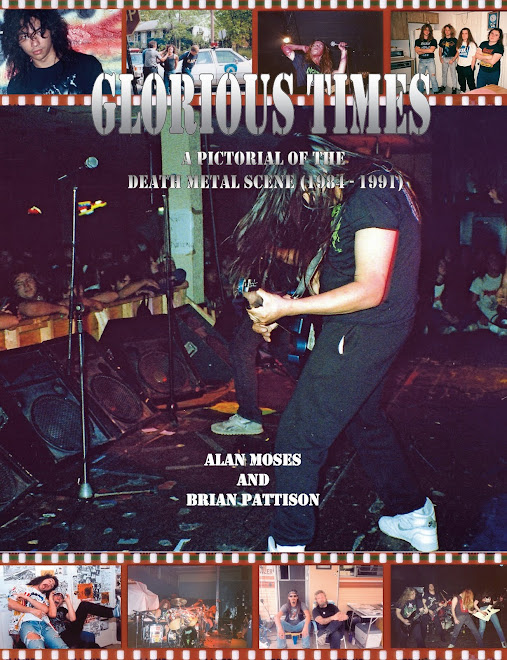




























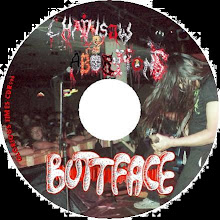


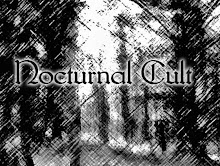























































































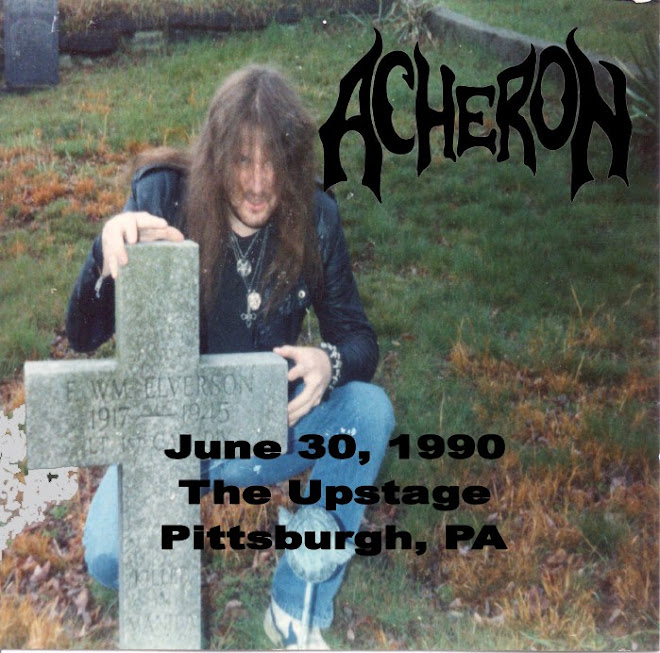







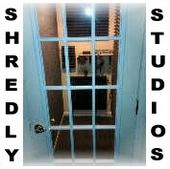

1 comment:
Great interview, good ol' Spike! I've had some close calls with the same affliction, colonoscopy every 5 years makes a difference in detection.
Post a Comment